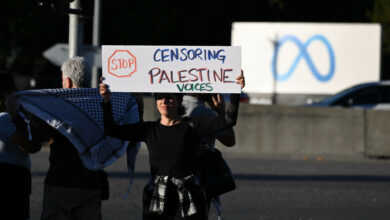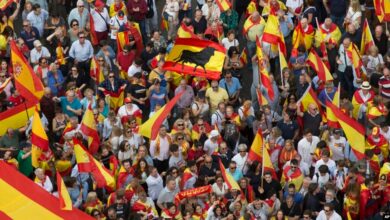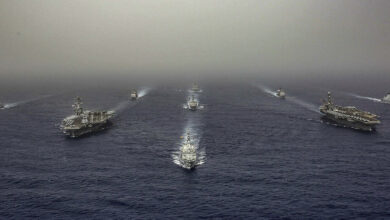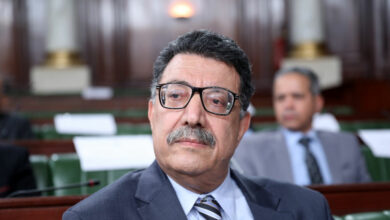The Ottomans in Eurasia, Pax Romana in the Mediterranean
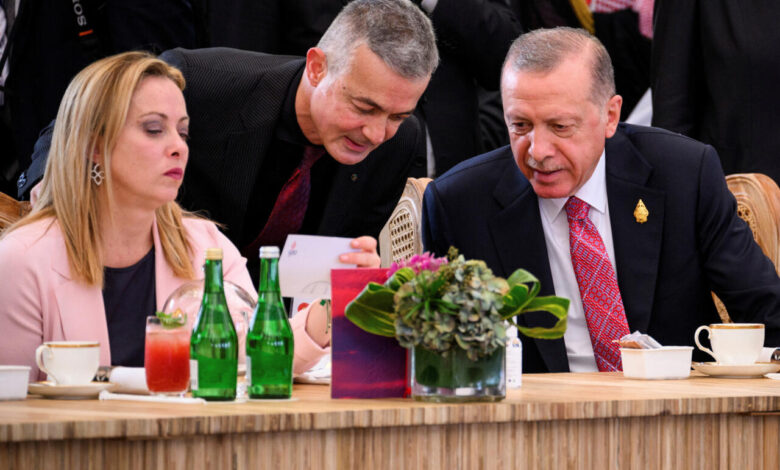
A week ago, Italy’s PM Giorgia Meloni met freshly reelected Turkish president Recep Tayyip Erdogan on the sidelines of the NATO summit in Vilnius, capital of Lithuania. As Meloni is eyeing a Neo-Pax Romana in the West-Mediterranean, Erdogan is leaving behind the cherished dream of a revived Ottoman Empire in the MENA region and turning towards Eurasia.
The withdrawal of the Ottomans:
For the last decade, President Erdogan has been relentlessly chasing the ghost of a bygone Ottoman Empire in the South Mediterranean. After the 2011 revolts that were briefly called the “Arab Spring,” he threw his support behind the Islamists of the Muslim Brotherhood in Libya, Egypt, Tunisia, and Syria. In all these states and in others, Islamists have relied heavily on a discourse on Ottoman revival and a new age of glory modeled after Erdogan’s Turkey.
At the beginning, though these Islamists in suit and tie failed to account for the contradiction of an Islamic revival modeled after secular Turkey, they managed to rally much support behind them.
From 2011 to 2013, Turkey had gained a foothold in Syria, Egypt, Libya, and Tunisia through a transnational ideological tie that promised a religious renaissance and placed Turkey at its center. Lately, the Ottomans have lost much of their influence in the MENA region and the South Mediterranean, where they thought the empire would be resurrected.
The rise of Kurdish nationalism in the Syrian Civil War, the 2013 coup in Egypt, and the suspension of the Tunisian parliament on July 25, 2021 by President Kais Saied limited the power of Islamists, and thus, the influence of the Ottomans, which is restricted today to Western Libya where Turkey keeps loyal irregular fighters.
Turkey saw one more major disappointment when Saudi Arabia and the United Arab Emirates blockaded Qatar, the key regional ally of Turkey which hosts Aljazeera TV channel and The International Council of Muslim Scholars headquarters, which both played an important role in the dissemination of Muslim Brotherhood ideology- Turkey’s soft power.
The Ottomans in Eurasia:
Turkey’s dwindling influence in the Mediterranean, rather than demise, can be seen as a withdrawal into Eurasia. There, the Ottomans are more pragmatic than ideological although they seem to be complying with their nationalists who are committed to the Eurasian space. Turkish nationalism intersects with Eurasianism. Turkish nationalists see the Eurasian space as their natural space of influence because it distances them from two other spaces they do not want to identify with: The West and the MENA region.
The Ukraine war has played into this inclination as it promoted Turkey’s role as a major actor in the Black Sea. Through brokering the grain deal with Russia and the United Nations (UN) and hosting meetings between Russian and Ukrainian officials, Turkey has strengthened its image as a go-between in this war.
Yet, Turkey’s in-betweenness is as much concerned with brokering deals as with helping each side of the conflict while making sure not to anger the other. Turkey has denounced Russia’s role in the war, voted for a UN resolution condemning Russia, blocked the Black Sea straits before the Russian fleet, and supplied Ukraine with Bayraktar drones and other types of military equipment and vehicles. Meanwhile, Turkey has maintained warm relations with the Russians as it resisted Western calls on joining the sanctions on Russia. Turkey needs Russia as a diplomatic bridge towards Syria while Russia needs it as a NATO member and a long-term cooperative competitor.
Turkey’s influence in Eurasia also rests on the country’s strong economic, political, military, and cultural ties in the region especially with Turkic countries. Former Azerbaijani president Heydar Aliyev once described Turkey and Azerbaijan as “two states and one nation.” This view of the two states translates the high level of integration between them. Turkey is dependent on energy imports from Azerbaijan and the latter has relied on Turkish support in its Ngorno Karabakh conflict.
As of 2014, Turkey was Turkmenistan’s main trade partner with a trade volume index of $4,746 billion. In a State visit to the Central Asian state, Erdogan affirmed the determination of the two sides to increase their trade volume to $5 billion.
Pax Romana:
In order to overcome the COVID 19 impact, the new ruling elite in Italy see Italy’s natural space in the EU, where the EU Recovery Fund is expected to boost Italian economy in the short run. However, in the Mediterranean, they see a space where Roman glory can be resurrected.
In order to respond to this short term necessity, Meloni has been blunt-spoken in her pro-Ukraine stance and in her commitment to “Europa.” But for a long-term dream, she has been keen on strengthening Italy’s role in the Mediterranean, particularly in North Africa.
Italy’s South Mediterranean undertaking is less ideological than that of Turkey. It is rooted in energy and security concerns. It began in Algeria earlier this year with an agreement to boost technical cooperation between the two countries and an energy deal that promises to turn Italy into an energy hub for Europe.
In Algeria, Meloni spoke fervently about her Mattei Plan for Africa which she contrasted with what she viewed as traditional “predatory” policies in an allusion to French foreign policy in Africa. Together with Algerian president Abdelmajid Tebboune, she celebrated the historic ties between the two nations that go back to the days of the Algerian war for independence (1954-1962).
The strengthening of relations between Algeria and Italy came in a very opportune moment when relations between the North African country, on the one hand, and France and Spain, on the other were strained.
In a recent article I argue that Meloni has often described her plan as one that intends to build win-win relations between the North and South Mediterranean. After her stoppage in Algeria, Meloni flew to Libya, skipping Tunisia.
Seen from a perspective that reduces geopolitics to economic interest, the avoidance of energy-poor Tunisia made much sense. In Libya, Italy’s energy giant Eni and Libya’s National Oil Corporation (NOC) struck an $8 billion gas production deal, which together with the one signed with Algeria would add to Italy’s energy prominence in Europe.
Pax Mediterranea:
Italy’s ambition of a Pax Romana has the potential to create an interdependence between it and the South Mediterranean states of Algeria, Tunisia, Libya, and Egypt. Bofore the arrival of Meloni to power, Italy had entertained strong economic relations with Egypt and Algeria. Former Italian Prime Minister Mario Draghi had made agreements with the Algerian leadership that prepared the ground for the actual deals.
The Rome-Carthage axis:
The Rome Carthage axis has always been at the heart of the power dynamics of the Mediterranean for it is this axis which can, once bridged, control the East-West Mediterranean communication flows besides the circulation of goods, people, and services. When Meloni skipped Tunisia in her North African trip earlier this year, it seemed that her “Mattei Plan” lacked some piece.
The Italian later enthusiasm, shown during the G7 Summit, about the country’s stalled negotiations with IMF, which stems more from concern about another migration crisis than from economic interest in Tunisia’s assets, has reinforced Italy’s image as a go-between at a time when states of the Global South are less responsive to Western conditionality due to an emerging multipolarity.
Marketing Italy’s role in international politics as a third alternative to the classical division between East and West inherited from the Cold War has been a strategy for the new ruling elite in Rome. Tunisia constituted a fertile soil for Italy to put in practice this policy, for small and energy-poor as it is, Tunisia is not a risky terrain geopolitically.
The recent partnership accord on irregular migration, renewable energy, and economy signed by Tunisia and the EU is more of a victory for the Italians than for the two concerned parties, for on the one hand, it gave the Italians proof to market in Europe that their go-between skills are more effective than traditional EU policies, and on the other hand, an argument to sell in Italy that their anti-migration electoral promises were translated into policies.
Speaking on Express FM Radio, former Tunisian diplomat Abdallah Laabidi said that the accord was mere European electoral campaign in Tunis, arguing that there is no progress to be noted in this accord. He explained that the latter reiterated former principles and agreements between Tunisia and the EU and presented them as European concessions.
Waiting for Hispania:
With the deals signed in Algiers, Tripoli, and Tunis, Italy has vied with other geostrategic competitors for influence in the Maghreb. In other parts of the West-Mediterranean, Right-wing Italy has a right wing vision. A week ago, in a show of support to VOX, Spain’s most right-wing party ahead of the July 23 elections, she addressed a crowd of VOX supporters of, through a televised appearance, saying, “The time of the patriots has come.”
Meloni took the opportunity to congratulate VOX and its leader Santiago Abascal on “the excellent results obtained in the last” regional and local elections. In her speech, she enumerated the conspiracies against these “patriots” and contrasted them with her successes, alluding to her Tunisia trip as an example.
The Italians’ want to adopt their Neo-“Pax Romana to energy needs in the MENA region and to right-wing protectionism in Europe. The likely victory of the right-wing in Spain will bring one more right-wing government to Southern Europe after Italy and Greece, and thus concord with Italy’s vision of a right-wing EU.
“I am also certain that the results of the July 23 elections can contribute to a landmark change of the direction of European politics,” she said.
European and African intersections:
Turkish and Italian foreign policy strategies intersect in the West, in general, and in Europe, in particular. Despite warming ties with Russia and interest in Eurasia, Turkey has taken its influence in the NATO alliance to another level with the veto it raised in the face of a Swedish membership.
President Erdogan unexpectedly reiterated the call to open the way for Turkey to join the EU on July 10. This call came amid Turkish growing influence in Eurasia and in Europe due to the Russia-Ukraine War, the 2015 immigration crisis, and the Turkish ambition to become an energy hub for Europe.
This ambition collides with that of Italy, which seems to be at an advantage due to European aversion to Russian gas, which Turkey hopes to supply to Europe, and the latter’s search for other energy routes, among which North African energy supplies via Italy which stand as a viable alternative.
Pax Romana and Ottoman Eurasia are not at odds with each other. Turkey’s last stronghold in North Africa in Western Libya from which much irregular migration traffic departs towards Italy and whose government has made energy deals with Italy gives the Italians a reason to talk to the Turkish.

